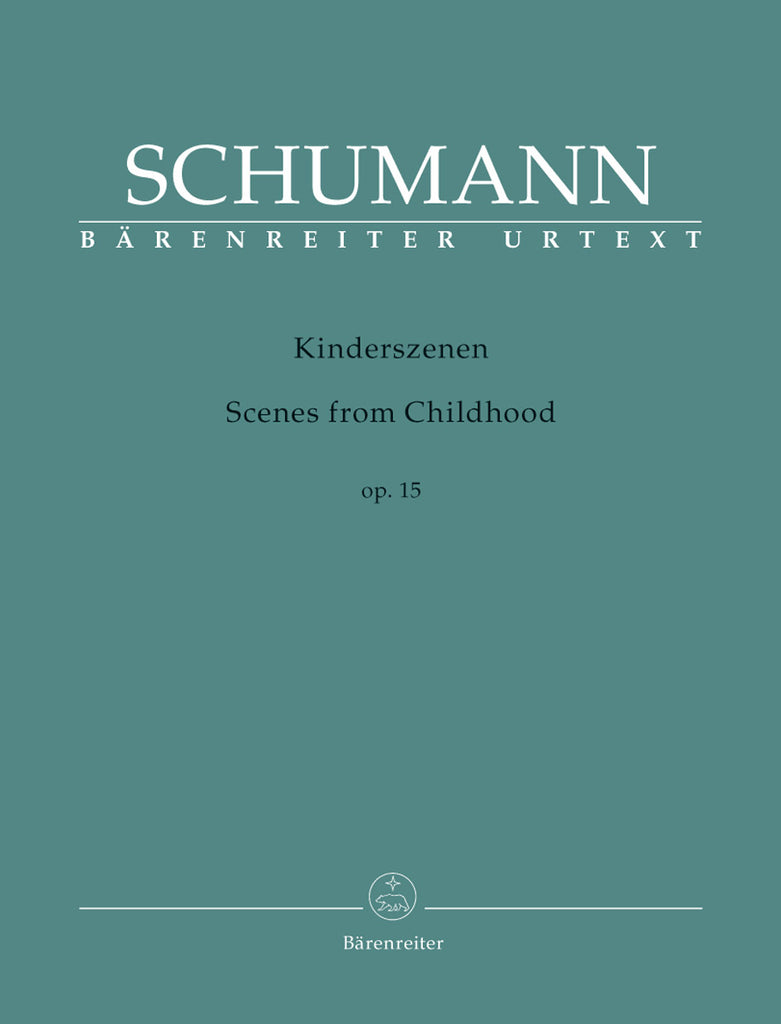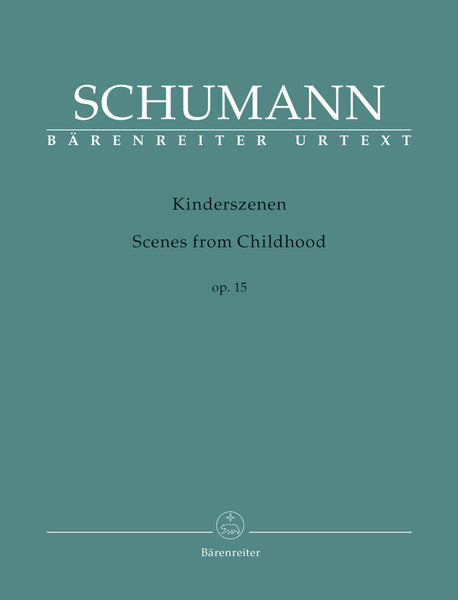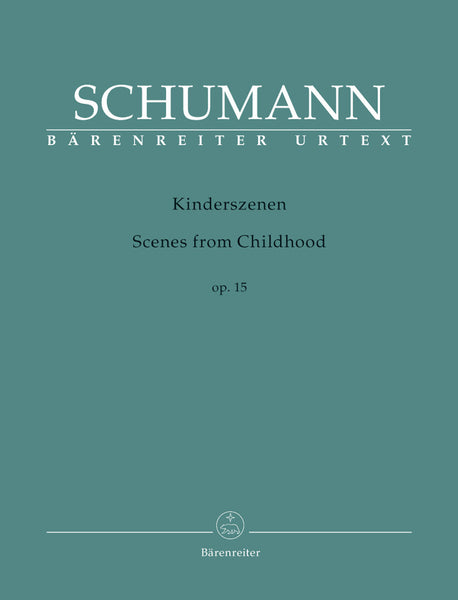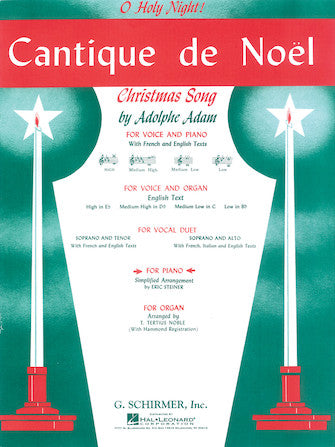Baerenreiter-Verlag Karl Voetterle GmbH & Co. KG
Schumann, ed. Stuwe – Scenes from Childhood, Op. 15 – Piano
Schumann, ed. Stuwe – Scenes from Childhood, Op. 15 – Piano
- Publisher: Baerenreiter
- Composer: Robert Schumann
- Editor: Holger M. Stüwe
- Format: Softcover
- Length: 20 p.
Schumann’s "Forest Scenes" op. 82 date from the years 1848/49. This was the composer’s most creative period but one which was marked by revolutionary unrest and political uncertainty. As well as choral compositions and major dramatic works including the opera "Genoveva" and "Manfred" Schumann created the intimate piano cycle Forest Scenes, inspired by illustrations of the same theme. The last to be written was the wistful-filigree "Vogel als Prophet" (no. 7), probably the best-known piece in the cycle. The pieces of moderate technical difficulty are enchanting in their song-like poetry, and are a jewel of domestic music-making from the Romantic period.
In spring 1838 Schumann composed "30 short, sweet things", as he called them in a letter to his fiancée Clara Wieck. He originally composed these under the title "Kindergeschichten" and intended them as a supplement to the "Noveletten" op. 21, also composed in 1838. From these piano miniatures he chose twelve pieces. At the beginning of the following year, now expanded with a thirteenth piece, they were published as "Scenes from Childhood" by Breitkopf & Härtel in Leipzig. The collection centred on Träumerei which is the seventh and the most famous piece in the collection.
The significance of the cycle was completely misjudged by the critic Ludwig Rellstab but it was enthusiastically received by Liszt. He wrote to Schumann in June 1839 that he was frequently playing "Scenes from Childhood" to his then three-and-a-half year old daughter Blandine with enthusiasm, but particularly to himself.
"Scenes from Childhood" op. 15 (BA 9639) and "Forest Scenes" op. 82 (BA 9640) are being published in scholarly-critical Urtext editions, reflecting the latest state of research. These are two of Schumann’s most popular piano cycles which are highly ranked in Romantic piano literature. The fingering takes contemporary performing practise as well as playing on the modern concert grand piano into consideration.







